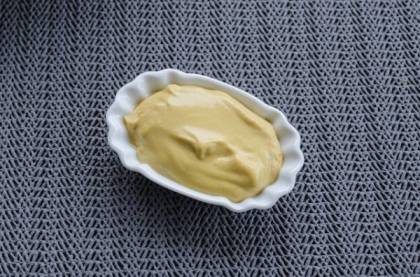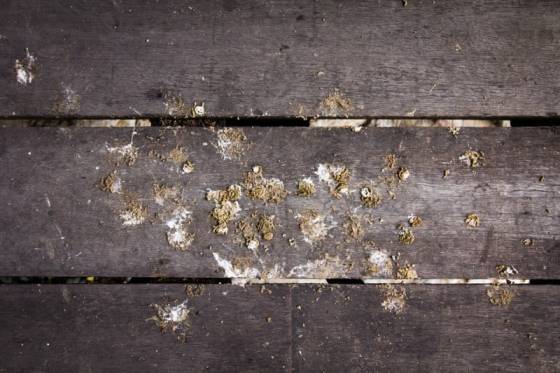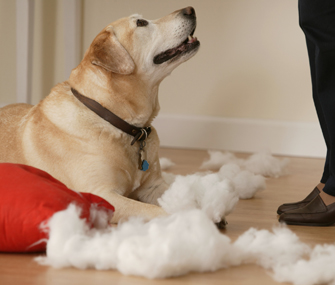Connect with a verified veterinarian in minutes. Licensed vets are available 24/7 to answer your questions. No need to worry about your furry family member.
Has your dog eaten some mustard? Are you worried that mustard could make your dog sick? If so, then you’ve come to the right place.
In this article, we’ll take a look at mustard and its ingredients, along with whether or not mustard can make your dog sick. Let’s get started!
What is Mustard?
Mustard is a very popular condiment used on a wide variety of foods such as hot dogs, hamburgers, and so much more! Mustard green and honey mustard are also sometimes used in cooking various dishes. It has a tangy flavor that many people love.
This condiment comes in many varieties, with bright yellow mustard being one of the most commonly used. Mustard may contain the following ingredients (depending on the type):
- Lemon juice
- Wine
- Flour
- Horseradish
- Paprika
- Turmeric
- Garlic powder
- Other liquids
- Salt
- Mustard seeds
- Flavorings
- Spices
When it comes to dogs, some of these ingredients are problematic. For instance, garlic is toxic to dogs. Horseradish and paprika are also not good for dogs.
Another problem is the mustard seeds, which we will discuss further now
What are the Possible Symptoms if My Dog has Eaten Mustard?
Mustard seeds contain glucosinolates, which are toxic to dogs. These substances can make your dog vomit, have diarrhea, nausea, and other digestive problems such as gastroenteritis.
- Vomiting
- Diarrhea
- Nausea (can be shown by lip smacking and dribbling)
- Tender/sore tummy
Dog’s digestive systems are very sensitive to toxic compounds. The side effects of ingesting mustard may be very serious and potentially fatal. Abdominal pain, bloody diarrhea, and even death can occur if the dog ingests a large amount of mustard. For this reason, it is strongly recommended to contact your veterinarian immediately if you suspect your dog has eaten mustard. Your veterinarian will be able to offer individual advice for your pet.
The primary concern is that mustard can cause ulcers in the dog’s stomach and intestines. Ingesting even small amounts of mustard can cause serious damage to the digestive tract of a dog.

Review symptoms, medications & behavior to keep your pets healthy with a Vet Online in just minutes.
Ask a Vet Live NowCan Dogs Eat Mustard?
The answer is no. If your dog eats a very small amount of mustard, such as a small amount left on your plate from a sandwich, generally this is not enough to cause toxicity or stomach problems. However, eating larger amounts can cause problems such as those listed above.
There are many types of mustard, including mustard powder. It is recommended that your dog does not get to eat any of them, as they can all cause stomach problems and toxicity in dogs.
What About Mustard Greens? Are Mustard Greens Safe for Dogs?
Thankfully, mustard greens are safe for dogs. Mustard greens come from the mustard plant (Brassica juncea L.) The plant is also referred to as brown mustard, vegetable mustard, Indian mustard, and Chinese mustard. Mustard greens belong to the same plant family as kale, collard greens, broccoli, and cauliflower.
There are several varieties of mustard greens available, some of which have a bitter, spicy flavor. Raw mustard greens usually taste too strong, so they’re usually cooked. You can boil, steam, stir-fry, and pickle these yummy plant leaves.
Pet parents and their canine companions can safely enjoy mustard greens and gain all the healthy benefits they provide. Mustard greens are also low in calories, which makes them a great snack or meal addition for dogs who are on a diet.
If you do give your dog mustard greens, make sure they are cooked and only offer them in small amounts. Mustard greens can cause diarrhea, abdominal pain, and other unpleasant gut symptoms if eaten in large amounts.
Can Dogs Eat Wild Mustard?
Wild mustard, also referred to as charlock mustard or field mustard, is harmful to dogs. These plants contain substances that can make a dog sick, including isothiocyanate and goitrogens. Isothiocyanate can cause problems with your dog’s digestive tract. Goitrogens interrupt the function of the thyroid gland. For these reasons, dogs should not eat wild mustard plants or their seeds.
Can Dogs Eat Mustard Powder?
No, mustard powder is unsafe for dogs. It can cause vomiting or be inhaled, leading to airway irritation.
What Should I Do – My Dog Ate Some Mustard?
If your furry friend has eaten a large portion of mustard, then it is recommended to contact your veterinarian immediately. They will be able to give you advice and guidance on what to do next for your pet.
Depending on several factors, including your pet’s individual size and how much mustard they have eaten, your vet may recommend an examination in the clinic.
Your veterinarian may recommend a blood test, medications to help protect their stomach, and also possibly a cannula to give your pet intravenous fluids (putting them on a drip) to help them recover from eating the mustard.
Seeking prompt medical attention from your vet will give your pet the best chance of making a good recovery and get them home to you feeling much better!
Connect with a verified veterinarian in minutes. Licensed vets are available 24/7 to answer your questions. No need to worry about your furry family member.

Evie Moloney, RCVS
This article has been reviewed and approved by an independent Veterinarian: Evie is a vet surgeon who graduated from the University College Dublin, which is the only university offering the veterinary medicine degree in Ireland. She really enjoys surgery and has also worked as an emergency and critical care vet. She is passionate about sharing education about preventative health care for pets, especially the importance of regular dog and cat teeth brushing at home. She also enjoys helping owners find practical solutions for keeping pets as comfortable as possible while living with conditions such as arthritis. When not working, she enjoys hiking and swimming.
Review symptoms, medications & behavior to keep your pets healthy with a Vet Online in just minutes.
Ask a Vet Live Now






